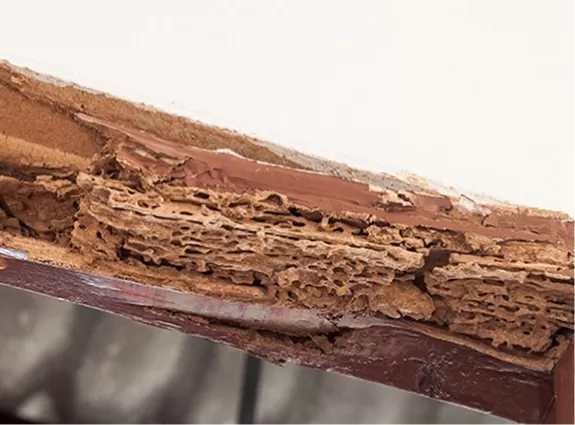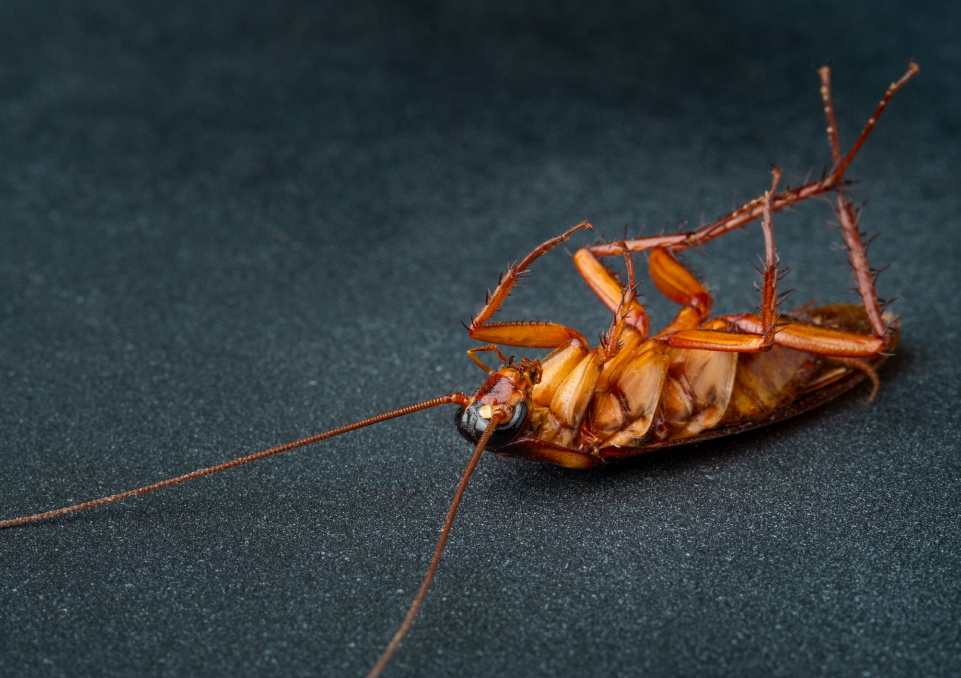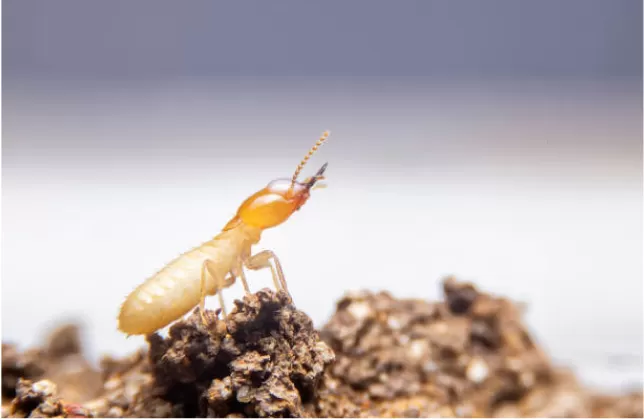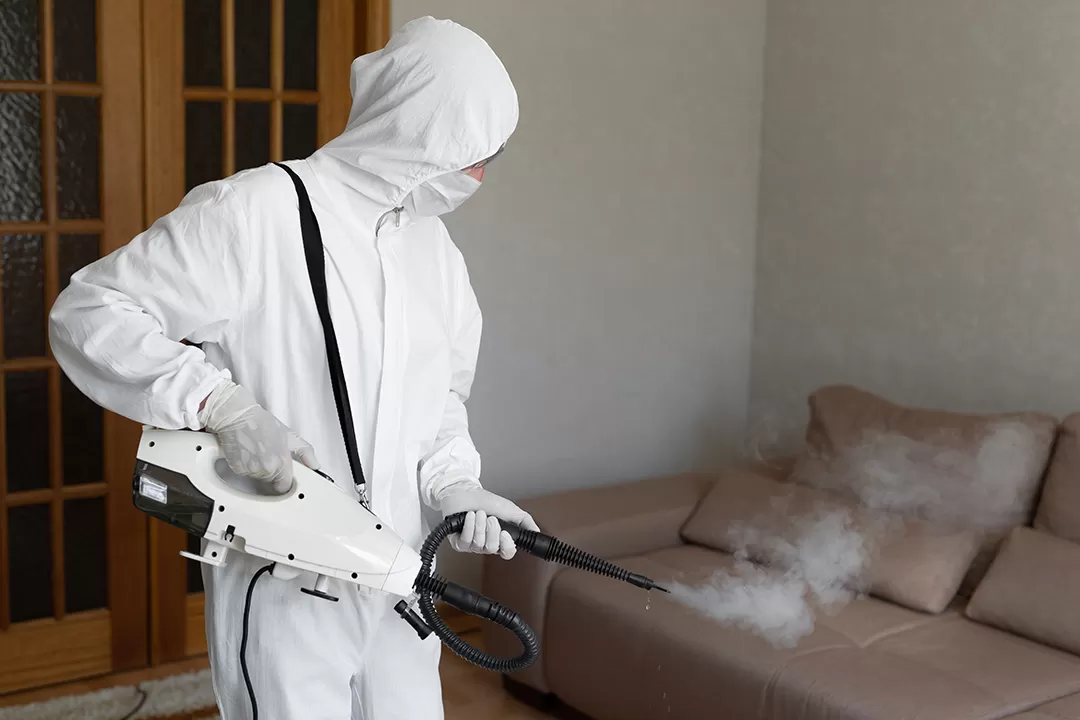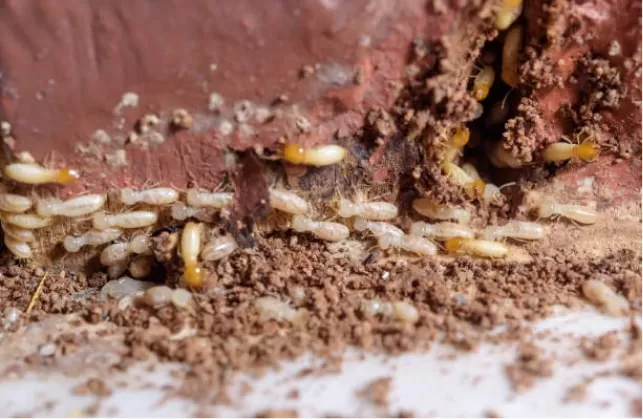Pests are not merely an irritating nuisance; they represent a significant threat to food safety and quality. They can contaminate food supplies and damage storage facilities, causing considerable disruption to both health and business operations. As we examine the various ways pests affect our lives—spanning health risks, structural damage, revenue loss, and reputational harm—it becomes evident that effective pest management is crucial. It is important to uncover the hidden dangers posed by pests and understand how Aardwolf Pestkare can assist in safeguarding your environment.
Key Takeaways:
- Pests can contaminate food and cause illness, posing a serious threat to food safety.
- Pests can cause structural and financial damage to food facilities, affecting food storage, packaging, and production.
- Proper pest control and management is crucial to maintaining the safety and hygiene of food facilities and preventing negative impacts on businesses and their customers.
Pests Can Contaminate Food and Cause Illness
Pests present a considerable threat to food safety by contaminating food products, which can lead to serious health risks such as foodborne illnesses that affect millions of individuals each year.
When food facilities are not managed properly, they can become breeding grounds for harmful bacteria, resulting in food poisoning cases that particularly affect vulnerable populations, including children and the elderly.
Therefore, effective pest management—like the services provided by Aardwolf Pestkare—is essential to ensure that food remains safe, preventing foodborne illness and keeping food safe from contaminants that could contribute to public health issues.
Pests Can Damage Food Storage and Packaging
Pests can significantly undermine food storage and packaging, leading to food contamination and a decline in the quality of products such as fresh fruits and vegetables. When pests infiltrate food storage areas, they often damage packaging materials, which can allow contaminants to enter food products, presenting serious food safety concerns.

For example, rodents are well-known for their ability to chew through cardboard boxes and plastic containers, leaving food exposed and susceptible to bacteria. Insects like moths and beetles can lay eggs in grains and cereals, creating infestations that are often undetectable until it is too late, ultimately rendering the food unfit for consumption.
The most commonly compromised materials include:
- Cardboard
- Plastic wrap
- Glass jars
- Mylar bags
Implementing effective pest control measures is essential for maintaining the integrity of food. Regular inspections and preventive strategies, such as applying sealants and using monitoring traps, can help ensure that pests do not compromise vital food storage systems.
It is important to remember that safeguarding food not only preserves its quality but also reduces the risk of foodborne illnesses.
Pests Can Cause Structural Damage to Buildings
Pests, particularly termites, can cause considerable structural damage to buildings. This not only threatens the physical integrity of the structures but also the safety of the occupants. Termites and other wood-destroying pests can compromise the stability of food storage facilities, potentially leading to expensive repairs and hazards that disrupt food safety protocols.
Plus termites, various other pests, such as carpenter ants and rodents, can also cause significant issues in food facilities. These pests are well-known for their tendency to gnaw through wooden beams and even electrical wiring, which can create electrical hazards or even the risk of fires. This is especially concerning in environments where compliance with health regulations is paramount, as structural weaknesses can increase the risk of food contamination.
- Wood-destroying insects can create hidden pathways that weaken the essential components of buildings.
- Rodents can contaminate raw materials with their droppings, directly affecting the quality of food products.
- The presence of such pests can result in regulatory fines and damage to a business’s reputation.
Therefore, regular inspections and preventative pest management strategies are crucial for maintaining the integrity of food facilities. These proactive measures not only protect the structure itself but also ensure that food safety remains intact, ultimately safeguarding both public health and the sustainability of the business.
Pests Can Spread Diseases to Humans and Animals
Pests are more than just an inconvenience; they can serve as vectors for diseases that impact both humans and animals, raising significant public health concerns. The transmission of foodborne illnesses through contaminated food or surfaces can result in serious health complications, particularly affecting vulnerable populations such as children and the elderly. This reality highlights the importance of implementing effective pest management strategies.
For example, rodents and insects frequently carry harmful pathogens that can contaminate food supplies, leading to outbreaks of diseases. These pests can transmit serious illnesses like Salmonella and E. coli, which pose considerable threats to food safety. The risk is even greater in community settings such as schools, nursing homes, and restaurants, where large groups of at-risk individuals come together.
- Vulnerable Populations: Children and the elderly are particularly susceptible to these health risks.
- Pathogen Spread: Pests can easily spread contaminants across food preparation areas.
Therefore, effective pest control measures are essential not only for preventing health risks but also for creating safe food handling environments that protect every member of the community.
Pests Can Affect the Quality and Quantity of Food Production
Pests have the potential to significantly disrupt both the quality and quantity of food production, resulting in reduced yields and compromised food standards. This disruption manifests in various ways, as pest infestations can wreak havoc on crops, including grains, fruits, and vegetables, while also posing threats to the health and productivity of livestock.
Farmers often encounter numerous challenges when addressing these unwelcome intruders, as different pest types display unique behaviors that necessitate tailored management strategies.
Understanding the effects of pests is crucial, not only for enhancing yields but also for promoting sustainable agricultural practices. In this regard, several effective techniques have emerged, including integrated pest management (IPM), crop rotation, and biological control methods. These strategies not only help in managing pest populations but also contribute to the overall health of the agricultural ecosystem.
Pests Can Lead to Loss of Revenue for Businesses
Pest infestations can result in considerable financial losses for food businesses, affecting both their profitability and reputation. When pests compromise food safety, businesses may encounter fines, a decline in customer loyalty, and increased operational expenses due to the necessity of pest control and remediation efforts.
Beyond the immediate financial consequences, such infestations can trigger a ripple effect throughout the supply chain. For example, businesses may have to contend with the aftermath of negative reviews as consumer trust wanes, leading to a downturn in sales. The costs associated with pest management, which include hiring professionals and implementing preventive measures, can escalate rapidly.
Key considerations include:
- Fines and penalties: Regulatory authorities may impose significant fines for violations related to food safety.
- Loss of inventory: Spoilage caused by infestations can lead to substantial losses of stock that is no longer sellable.
- Reputation damage: A single pest incident can tarnish a brand’s image, deterring potential customers.
Investing in preventive measures is not merely a wise decision; it is essential for protecting revenue and ensuring long-term success in the industry, including maintaining track records for licensed food establishments.
Pests Can Be Difficult to Control and Eliminate
Controlling and eliminating pests presents significant challenges for food facilities, primarily due to the rapid reproduction rates and adaptability of these unwanted guests. It is essential to implement effective pest management strategies, not only to address current infestations but also to prevent future outbreaks, thereby ensuring food safety.
The situation is further complicated by the biology of pests, which allows them to thrive in a variety of environments, making them resistant to conventional treatments. Many facilities find themselves grappling with pests that develop resistance to common control methods, resulting in those strategies becoming ineffective over time.
To tackle these persistent challenges, integrated pest management practices have become increasingly important.
- These methods emphasize a holistic approach, combining multiple strategies to effectively manage pest populations and ensure food safety.
- By understanding and leveraging the life cycles and behaviors of pests, facilities can implement targeted interventions that reduce the likelihood of resistance development.
- Additionally, promoting employee awareness and training can be invaluable in recognizing early signs of infestation.
Adopting such comprehensive practices not only leads to more sustainable pest control but also ensures long-term food safety, food security, and operational success.
Pests Can Cause Negative Reputation and Loss of Customers
The presence of pests can significantly harm a business’s reputation and result in a loss of customers, especially in the food industry where food safety and food safety risks are of utmost importance. Consumers are increasingly aware of food safety issues, and even a single sighting of a pest can deter potential customers from returning.
It is essential for business owners to recognize that pest infestations not only pose health risks but also foster negative public sentiment toward their establishments. A pest problem can spread rapidly through social media and word-of-mouth, creating a lasting impression that may overshadow their long-standing efforts to provide high-quality service.
Therefore, businesses must implement comprehensive pest management strategies that include regular inspections, employee training on sanitation practices, and immediate response protocols. This could involve:
- Implementing Integrated Pest Management (IPM) strategies.
- Scheduling routine maintenance and cleanliness checks.
- Forming partnerships with professional pest control services.
By prioritizing a pest-free environment, a business not only ensures compliance with health regulations but also builds trust with customers who value their well-being and safety.
Pests Can Be a Recurring Problem if Not Properly Managed
Without proper management, pests can become a recurring issue in food facilities, posing ongoing challenges for food safety and operational efficiency. Regular inspections and proactive pest management strategies are essential to preventing infestations from taking hold.
To maintain a pest-free environment, food establishments should adopt a comprehensive approach that includes multiple strategies.
- Implementing routine inspections is crucial for early detection, allowing for prompt intervention before more serious issues develop.
- Establishing sanitation protocols helps eliminate food sources that attract pests, thereby promoting a clean workspace and food safety practices.
- Educating staff on pest identification and prevention techniques give the power tos the entire team to remain vigilant.
Employing physical barriers, such as sealing cracks and installing screens, can also effectively deter pests.
Finally, partnering with pest control professionals adds an expert layer of monitoring and response, ensuring that pest issues are managed efficiently and do not compromise food safety or customer satisfaction.
Pests Can Affect the Overall Safety and Hygiene of Food Facilities
Pests can have a serious impact on the overall safety and hygiene of food facilities, putting both consumer and worker health and food safety and security at risk. It is essential to implement effective pest control measures to ensure that food establishments comply with strict food safety regulations and maintain high hygiene standards.
Maintaining a pest-free environment goes beyond mere legal compliance; it is vital for safeguarding the reputation of any food business. Those involved in food safety should recognize that pest management is a proactive approach rather than a reactive solution. By implementing a comprehensive pest control plan, a cleaner workspace is created, which not only aids in regulatory compliance but also enhances consumer confidence in the products being offered.
To achieve this, consider the following strategies:
- Conduct regular inspections of the premises to identify potential pest entry points.
- Ensure proper waste management practices are in place to minimize food sources for pests and chemical contamination.
- Train staff on hygiene protocols and emphasize the importance of reporting pest sightings immediately.
By integrating these strategies, food facilities can significantly elevate their safety standards while effectively reducing the risk of pest infestations.
Frequently Asked Questions
What makes pests the biggest food safety risk?
Pests are the biggest food safety risk due to their ability to contaminate and damage food products. They carry harmful bacteria and can cause foodborne illnesses, making them a serious threat to public health.
How do pests contaminate food?
Pests can contaminate food through their droppings, urine, hair, and body parts. They can also transmit diseases and pathogens by crawling or flying onto food surfaces.
What types of pests pose the biggest food safety risk?
Common pests that pose the biggest food safety risk include rodents, cockroaches, flies, and stored product insects. These pests are known to carry a wide range of diseases and can infest and damage food products.
How can Aardwolf Pestkare help with pest-related food safety risks?
Aardwolf Pestkare offers professional pest control services to effectively eliminate and prevent pest infestations. They use safe and effective methods to remove pests and keep food products safe from contamination.
What are some other pest control solutions offered by Aardwolf Pestkare?
In addition to termite control, Aardwolf Pestkare offers a variety of pest management solutions, including bed bug control, mosquito control, and bird control. These services can help protect food facilities from a wide range of pest risks.
How can I prevent pests from becoming a food safety risk in my home or business?
To prevent pest-related food safety risks, it is important to maintain a clean and hygienic environment, seal any potential entry points, and regularly schedule pest control services. Aardwolf Pestkare can provide guidance on how to prevent and manage pests in your specific setting.


